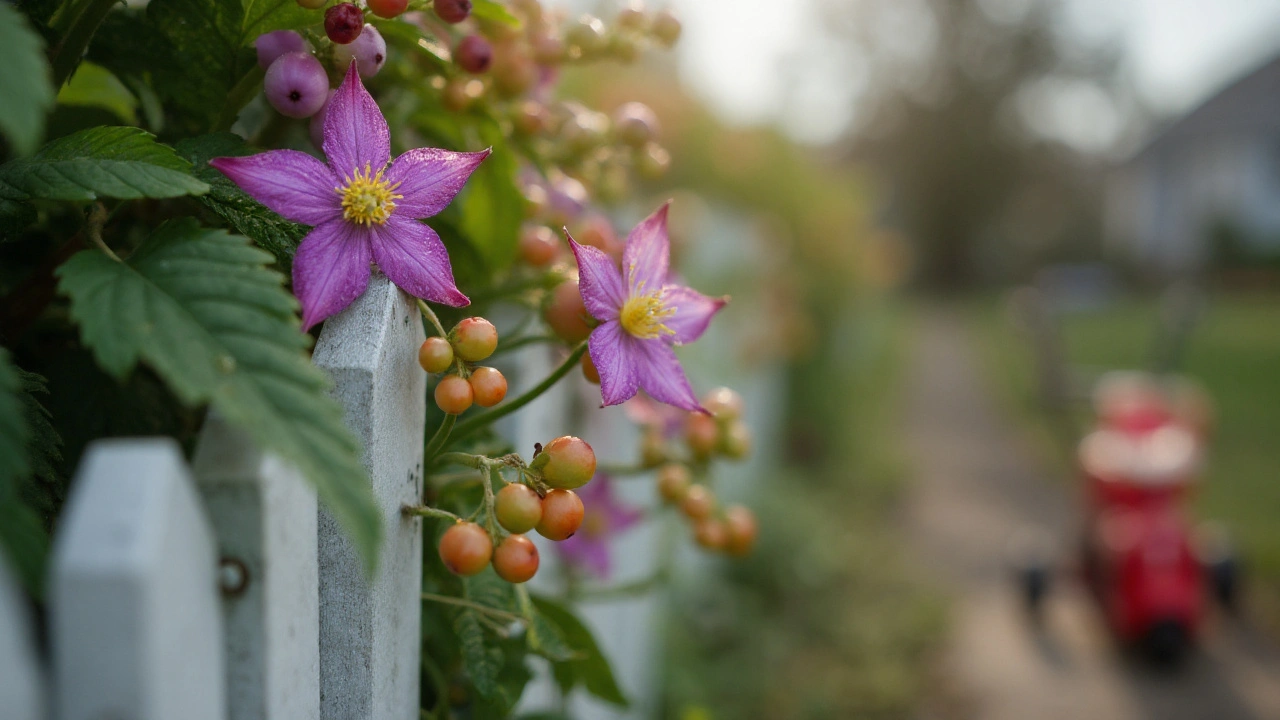Bittersweet Nightshade – Quick Facts and Safety Tips
If you’ve ever walked through a forest and seen a plant with dark purple berries, you might have spotted bittersweet nightshade. This plant looks attractive, but it can be risky if you mistake it for something edible. Below you’ll find the basics you need to know, from identification to safe handling.
What is Bittersweet Nightshade?
Bittersweet nightshade (Solanum dulcamara) belongs to the Solanaceae family, the same group that includes tomatoes, potatoes, and deadly nightshade. It’s a climbing vine with glossy green leaves, small white or pinkish flowers, and bright red‑black berries that turn glossy black when ripe. The berries contain toxic alkaloids called solanine and dulcamarine, which can cause nausea, vomiting, and dizziness if eaten.
Historically, Ayurvedic practitioners used the plant in tiny doses for skin problems and respiratory issues, but modern research warns against casual use. The plant’s extracts are being studied for anti‑inflammatory properties, yet any self‑medication is off‑limits without professional guidance.
How to Use or Avoid It Safely
First, don’t eat the berries or any part of the plant unless a qualified herbalist tells you it’s safe. If you’re a forager, learn to tell bittersweet nightshade apart from harmless berries like those of the blackcurrant. Key clues: the berries are glossy, not matte; the plant tends to climb on fences or trees; and the stems are often slightly prickly.
If you need to remove it from a garden, wear gloves and use long tools to avoid contact with the sap. Wash any clothing that touched the plant right away. In case of accidental ingestion, seek medical help—don’t wait for symptoms to appear.
For those interested in its potential health benefits, stick to products that have been standardized, tested for purity, and prescribed by a healthcare professional. That way you avoid the unpredictable alkaloid doses that wild plants carry.
Below are some articles on our site that also touch on plant safety, herbal supplements, and similar topics you might find useful:
- Great Plantain (Plantago major) Supplement Guide – benefits, dosage, and safety tips.
- Cabergoline for Men – uses, dosage, side effects, and safety.
- Dosulepin (Dothiepin) for Migraines – evidence and safety considerations.
- Finast (Finasteride) 2025 Guide – dosage, side effects, and safe sourcing.
- Sertraline for GAD – effectiveness, dosage, and safety.
Remember, the best rule with any wild plant is respect and caution. If you’re ever unsure, snap a photo and ask a local expert or consult a reliable online guide. Staying informed keeps you safe while you enjoy the outdoors.
Got more questions about bittersweet nightshade or other herbs? Drop a comment, and we’ll tackle it together.
